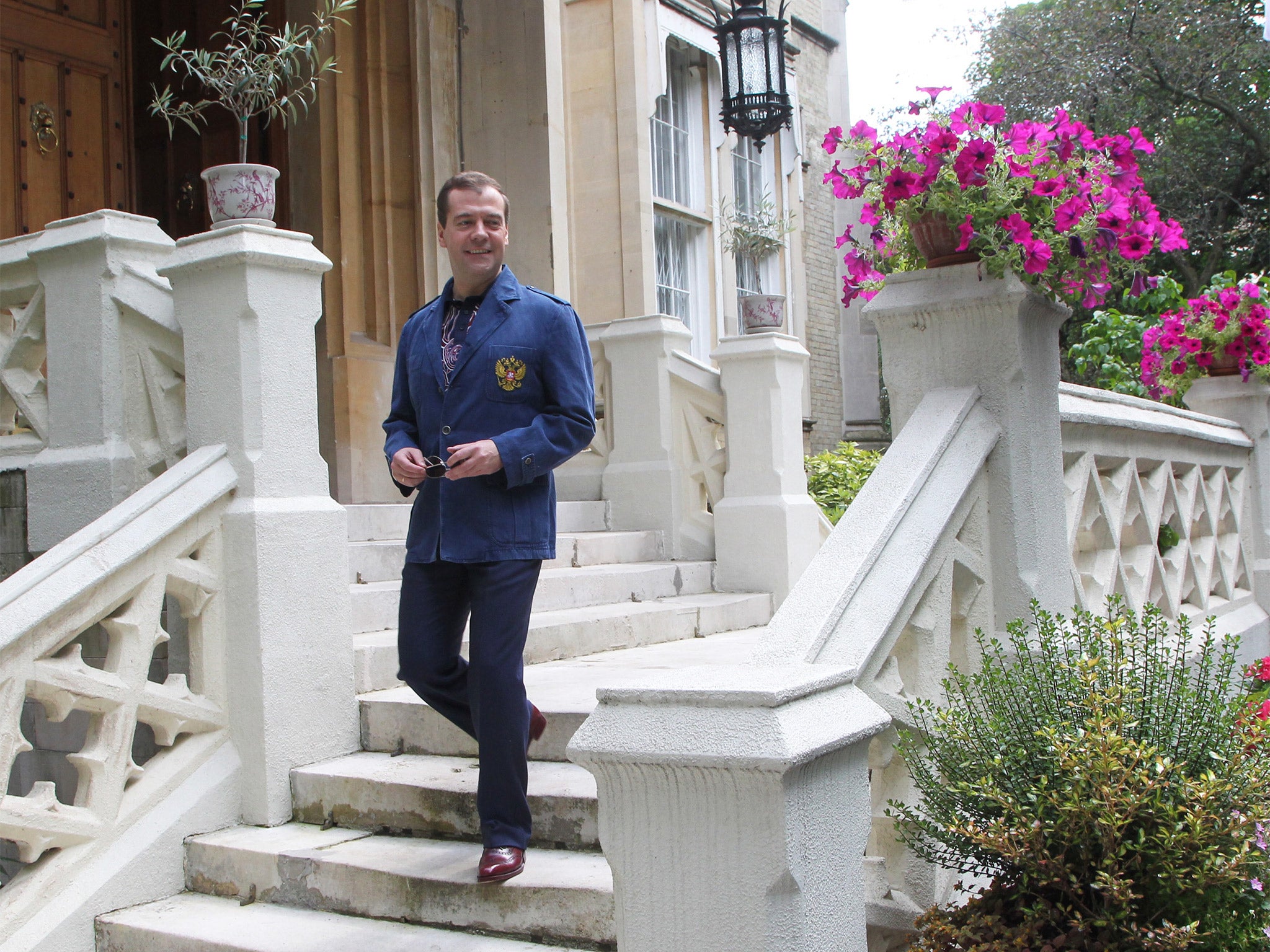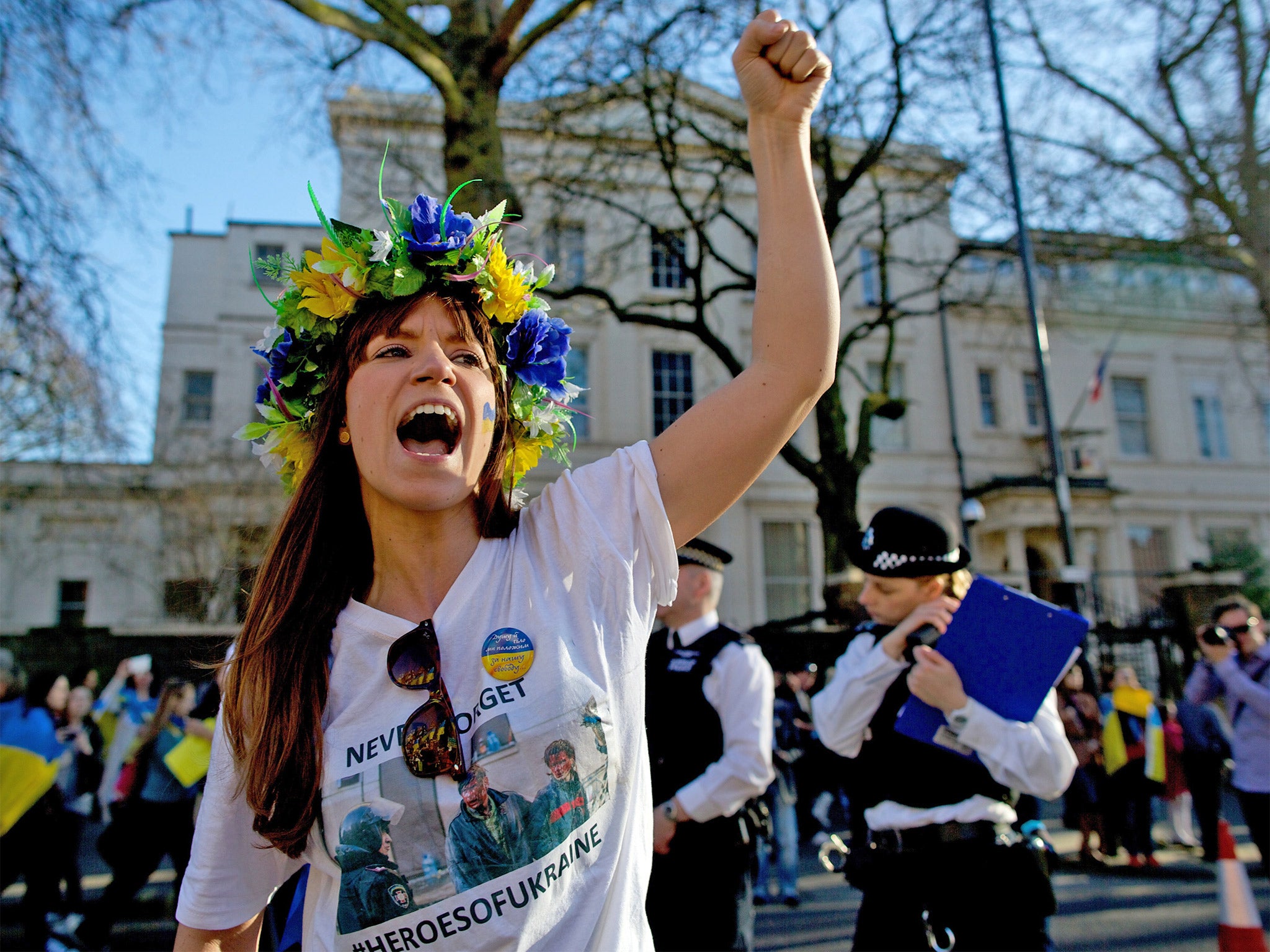Ukranian nationalist 'planned terror attack on Russian embassy in London'
Court hears how Vadim Bezkorovainiy became 'radicalised' by the tensions in eastern Europe

A Ukrainian nationalist planned a terror attack on the Russian embassy in London after becoming “radicalised” by the tensions in eastern Europe, a court heard.
Vadim Bezkorovainiy, 35, is said to have carried out three reconnaissance missions to the embassy from his home in Luton, Bedfordshire, during a three-day period in March 2014 – one of several indications he was plotting violence against the embassy or its ambassador, prosecutors said.
His trial at the Old Bailey heard how the father-of-two had allegedly become radicalised having briefly left the UK to return to Ukraine at a time when political and diplomatic conflict involving Russia and the Ukraine escalated.
It was only when police raided Bezkorovainiy’s home on suspicion of using false identification documents that detectives discovered images and video files suggesting he was plotting a terror attack.
Handwritten notes were also recovered, which prosecutors said were a rough draft of a press release or speech to be issued after the attack. He denies engaging in conduct in preparation for giving effect to an intention to commit acts of terrorism.
Robin Sellars, for the prosecution, said: “This case involves what the Crown say was a deliberate and definitive course of action by this defendant in preparation of an act or acts of terrorism.
“You will hear that he carried out protracted research on the internet into the manufacture of detonators and explosives of varying strengths and effectiveness. That was all with a political target in mind – to promote his political motive and ends at the time.”

The court heard that notes recovered from his home in Old Bedford Road on 15 March last year included the phrase: “Being under the constant cover and surveillance by Scotland Yard, the Russian embassy in London did not manage to avoid destruction… Security ended up powerless. Now one [sic] can imagine what will happen to Moscow, St Petersburg, the regional centres, if we redeploy fighters who are simply going to smash everything around them.”
A laptop seized from Bezkorovainiy’s home contained details of internet searches for explosives and flame throwers, while a memory card showed images of the embassy buildings, the court heard.
Mr Sellars said the defendant returned to Ukraine from the UK between September 2012 and January 2013. He told the court: “This is of significance as the Crown alleges that in effect his exposure to the tensions in that region first-hand had the effect of radicalising Mr Bezkorovainiy to the extent that he decided to take matters into his own hands once back in the UK.”
The prosecution said there was further evidence of Bezkorovainiy’s alleged radicalisation in the days before his arrest, when he was overheard talking to his nine-year-old daughter about using guns, setting the neighbour’s garden on fire, and bomb-making.
Mr Sellars said: “The Crown say everything is moving towards one ultimate conclusion – this is someone exhibiting radicalised behaviour.”
The trial, which continues, is being held before His Honour Judge Tim Pontius.
Press Association